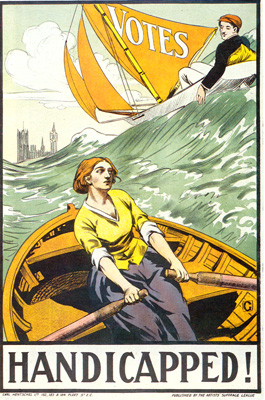
Handicapped! Duncan Grant, Artists' Suffrage League, 1907, Cambridge University Library
Art became the primary means for calling women to direct action through processions and assemblies which helped normalize women appearing in public forums.

Handicapped! Duncan Grant, Artists' Suffrage League, 1907, Cambridge University Library
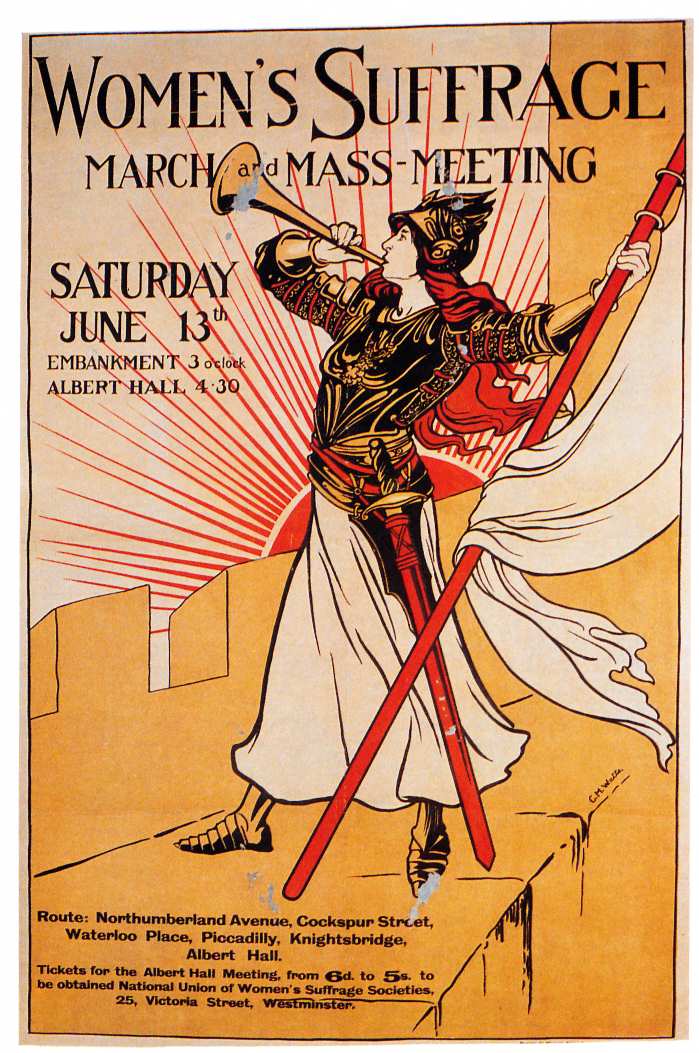
The Bugler Girl, Caroline Watts, Artists' Suffrage League, 1908, The Woman and Her Sphere
In June of 1908, NUWSS and WPSU both held large marches in London. WSPU’s protest, known as Women’s Sunday, featured over 700 banners designed by members of SA and carried by 30,000 suffragettes.
"The meeting was considered to be a great success, although several newspapers pointed out that most of those attending were there out of curiosity rather than support for the cause... it was a good opportunity to win over a few converts to the cause"
~ Hannah Awcock, Writer for Turbulent London
NUWSS Suffrage Procession, June 13, 1908, Museum of London
Home-Makers, Mary Lowndes, 1908, Museum of London
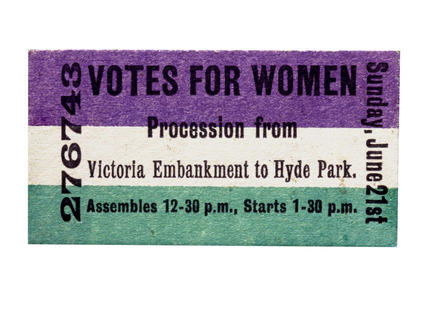
Women's Sunday Ticket, WSPU, 1908, Museum of London
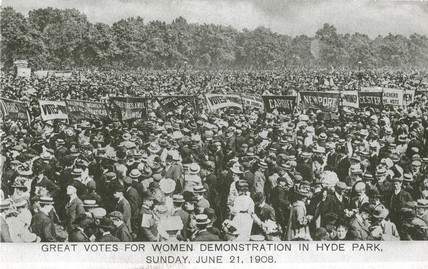
Women's Sunday in Hyde Park, 1910, Museum of London.
NUWSS and WSPU collaborated on the Woman Suffrage or Conciliation Bill to grant suffrage to 1M property-owning women. While Liberal PM Herbert Asquith signaled his support, he joined Parliament's anti-suffrage conservatives and pro-working class liberals to oppose the bill.
Votes for Women Front Page, March 12, 1909, Google News Archive
The pro-suffrage art reveals doubt in political leaders.
“It is not merely an undemocratic Bill it is worse. It is an antidemocratic Bill. It gives an entirely unfair representation to property as against persons.”
~ Member of Parliament Winston Churchill, 1910
“For my part I should not regard any measure of woman suffrage as satisfying my conceptions of equality which did not confer the suffrage on precisely the same grounds as, for the time being, it is enjoyed by man.”
~ Liberal Prime Minister Herbert Asquith, 1910
ASL, SA, and NUWSS published artwork promoting the bill in order to rally support.
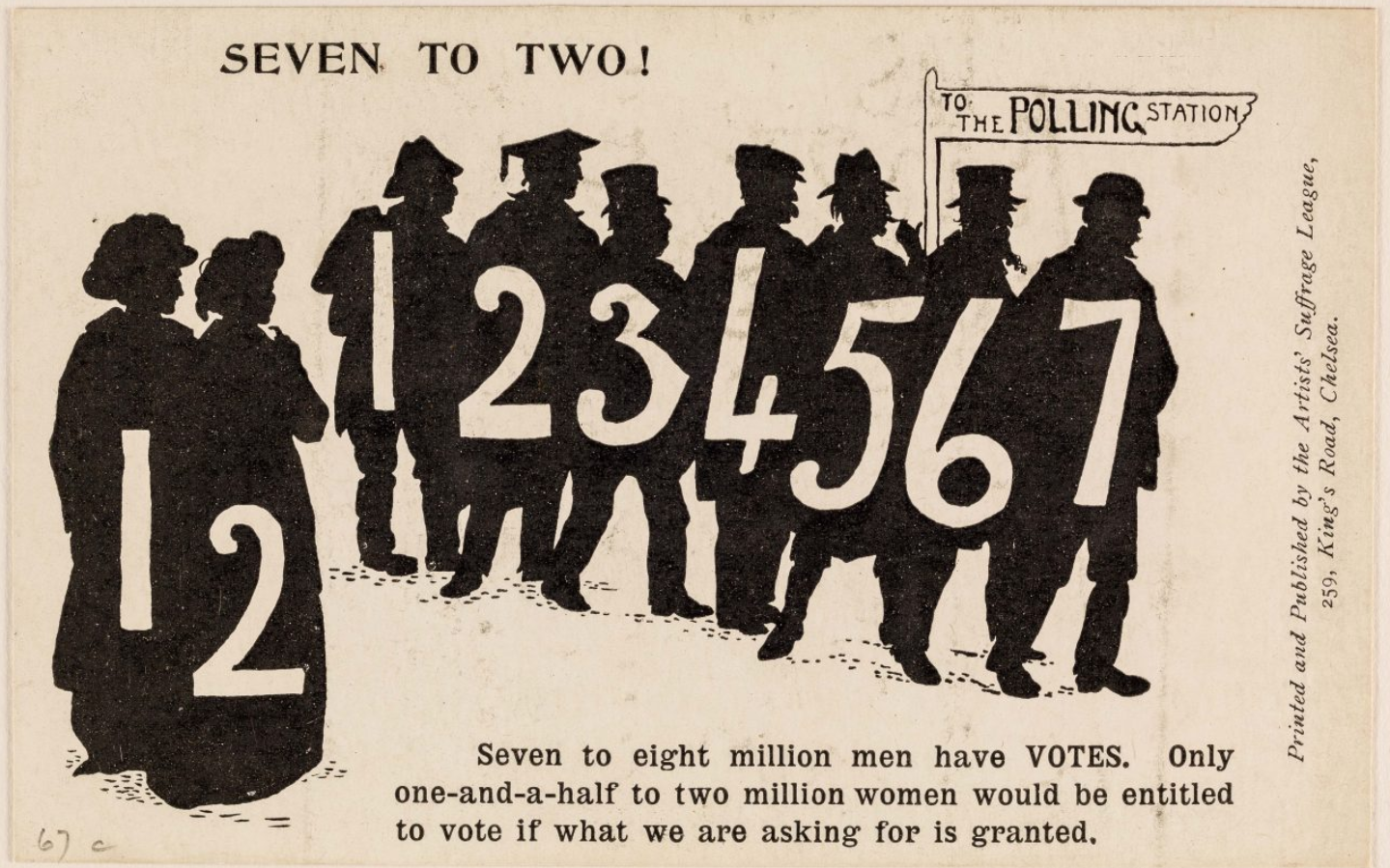
Seven to Two! Mary Lowndes, Artists' Suffrage League, 1910, Flashbak
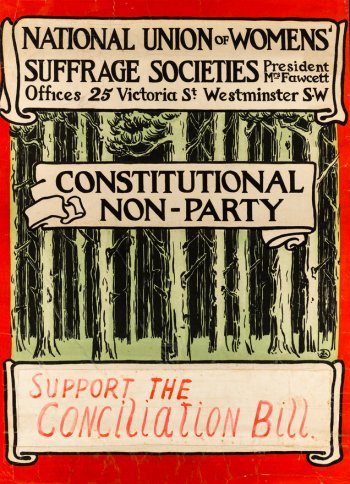
NUWSS Pamphlet for Conciliation Bill, 1910, Atcherley UK
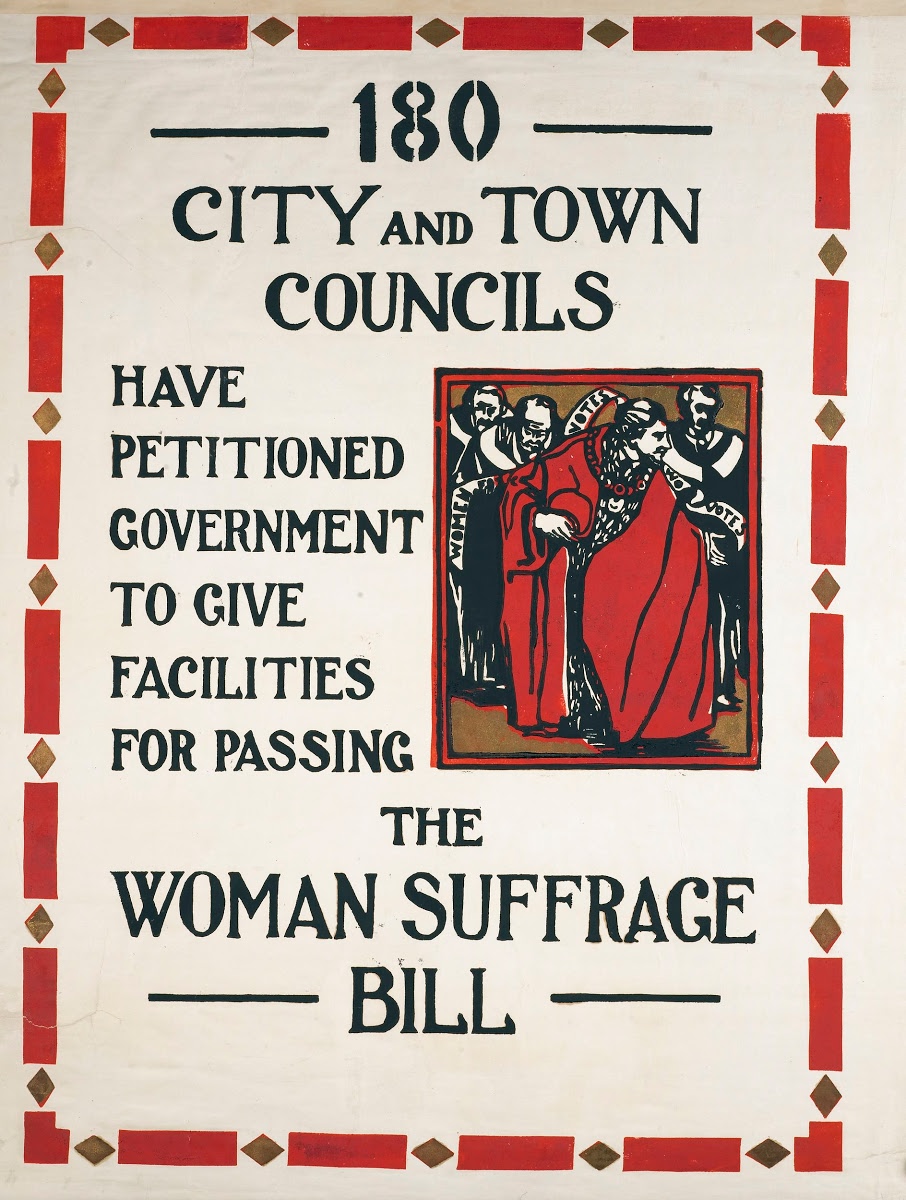
180 city and town councils, Suffrage Atelier, 1910, Museum of London
Pankhurst and angered members of WSPU stormed Parliament, demanding negotiation with Asquith, who refused their demand. Consequently they were shown to Parliament Square where they encountered large, unprecedented measures of brutal harassment. This day was called Black Friday.
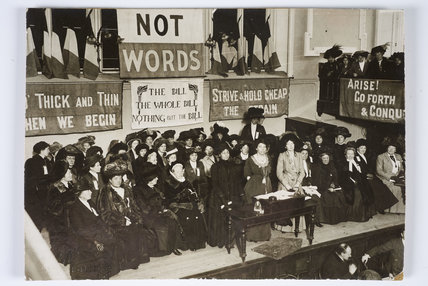
Suffragettes at Caxton Hall, 1910, Museum of London
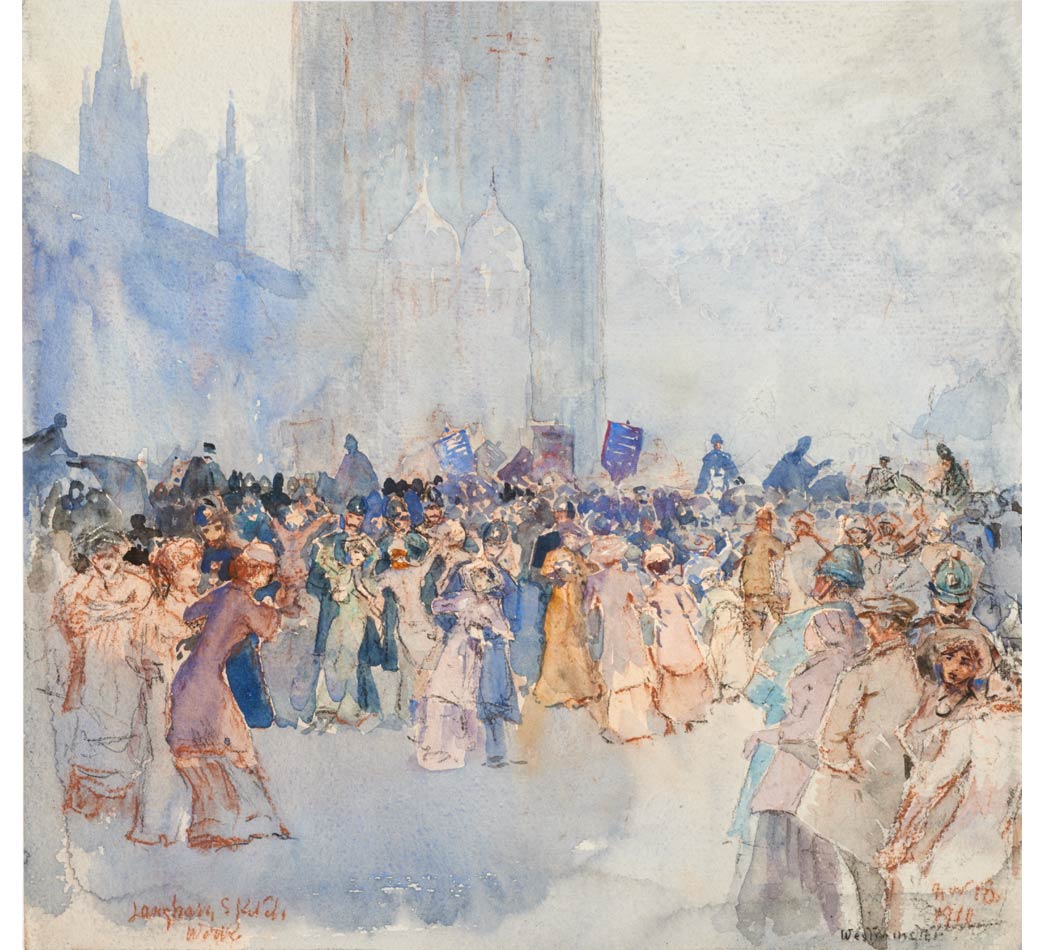
Black Friday, William Monk, 1910, Museum of London
Votes for Women on Black Friday, 1910, The National Archive
"Several times constables and plain-clothes men who were in the crowds passed their arms round me from the back and clutched hold of my breasts in as public a manner as possible, and men in the crowd followed their example... he threw me into the crowd and incited the men to treat me as they wished".
~ Anonymous Suffragette, Black Friday, 1910